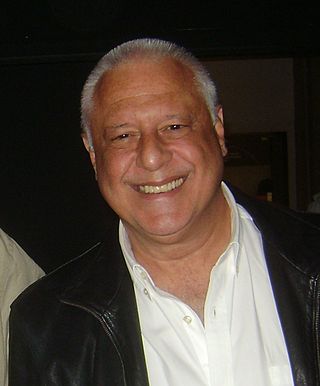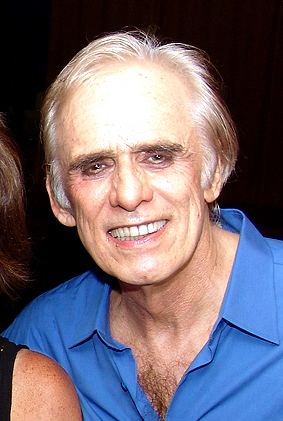
Sônia Maria Campos Braga is a Brazilian actress. She is known in the English-speaking world for her Golden Globe Award–nominated performances in Kiss of the Spider Woman (1985) and Moon over Parador (1988). She also received a BAFTA Award nomination in 1981 for Dona Flor and Her Two Husbands. For the 1994 television film The Burning Season, she was nominated for an Emmy Award and a third Golden Globe Award. Her other television and film credits include The Cosby Show (1986), Sex and the City (2001), American Family (2002), Alias (2005), Aquarius (2016), Bacurau (2019), and Fatima (2020). In 2020, The New York Times ranked her #24 in its list of the 25 Greatest Actors of the 21st Century.

Antônio José da Silva Fagundes Filho is a Brazilian actor, playwright, voice actor, and producer. Renowned for his several performances in stage, film and television, where he frequently works in telenovelas.
Luiz Fernando Carvalho is a Brazilian filmmaker and television director, known for works closely linked to literature that constitute a renovation in Brazilian audiovisual aesthetics. He has already brought to the screen works by Ariano Suassuna, Raduan Nassar, Machado de Assis, Eça de Queirós, Roland Barthes, Clarice Lispector, Milton Hatoum, José Lins do Rego and Graciliano Ramos, among others.

Ney Franco da Silveira Júnior, known as Ney Franco, is a Brazilian football manager.

Marco Antônio Barroso Nanini is a Brazilian actor. Most of his activities have been in comedy.

Lélia Abramo was an Italian-Brazilian actress and political activist.
Cecília Dassi is a Brazilian retired actress famous for her work on Rede Globo soap operas.

Paulo Sérgio Betti is a Brazilian actor, playwright, and stage director. He also works occasionally as film producer and director.

Leonardo Villar was a Brazilian actor. He became internationally known for his performance as Zé do Burro in Anselmo Duarte's O Pagador de Promessas, the only Brazilian film so far awarded a Palme d'Or at the Cannes Film Festival.

Sophie Charlotte Wolf da Silva is a Brazilian actress.

Marcos Vianna Caruso is a Brazilian actor, screenwriter, playwright, and stage director.

Alexandre Nero Vieira is a Brazilian actor, singer, songwriter, musician, arranger, sound designer and musical director. In 2016, he was nominated for the International Emmy Awards for Best Actor, for his starring role in the telenovela A Regra do Jogo.

Francisco Cuoco is a Brazilian actor. He became known for his roles as a heartthrob in telenovelas from Rede Globo, such as Selva de Pedra (1972), Pecado Capital (1975) and O Astro (1978), among others.

Events in the year 1936 in Brazil.

Pedro Bandeira de Luna Filho is a Brazilian award-winning and best-selling children's novelist and poet, best known as the author of the Os Karas hexalogy of mystery novels which comprise A Droga da Obediência (1984), Pântano de Sangue (1987), Anjo da Morte (1988), A Droga do Amor (1994), Droga de Americana! (2001) and A Droga da Amizade (2014).
Domingos Montagner Filho was a Brazilian actor, playwright and entrepreneur. He began his career in theaters and circuses, through the course of interpretation of Myriam Muniz. In 1997, Montagner formed La Mínima group, alongside Fernando Sampaio, and won the Shell Award for Best Actor. In 2003, he founded the Zanni Circus, of which he was artistic director.

José Jesuíta Barbosa Neto is a Brazilian actor. He is considered an important talent of recent Brazilian cinema and has performed in critically acclaimed feature films.

Plínio Marcos de Barros was a Brazilian writer, actor, journalist and playwright, author of several stage plays adapted into film. Called a "Poète maudit" by some, his work features the life and struggles of underground characters, touching themes such as violence, prostitution and homosexuality, and was censored by the military government.

Luiz Otávio Gabus Mendes in São Paulo) is a Brazilian actor.
Ternuma is a non-governmental organization formed in 1998 by military, ex-military, family members and their sympathizers that aims to interdict and deny the past about the military dictatorship in Brazil from 1964 to 1985.
















